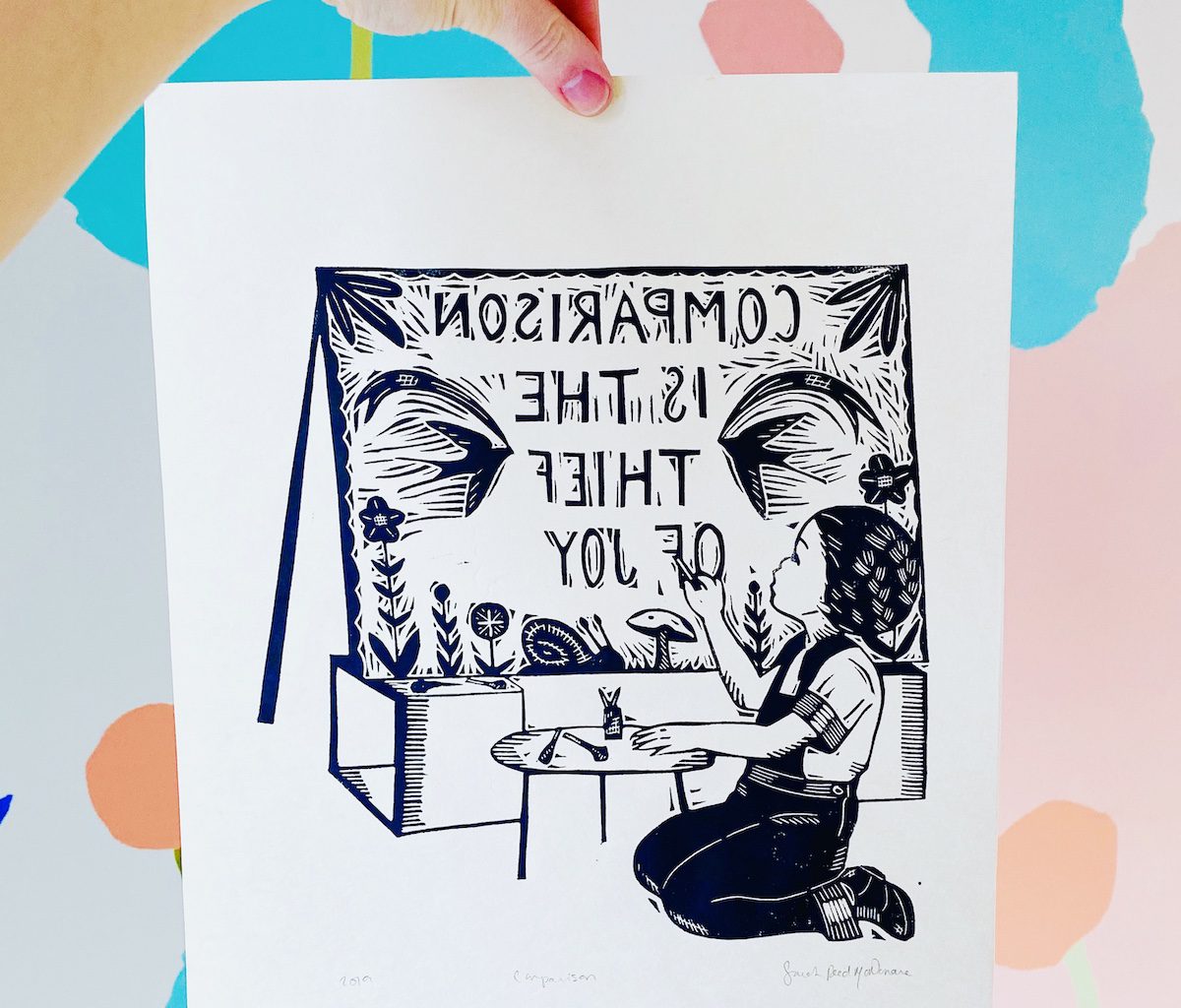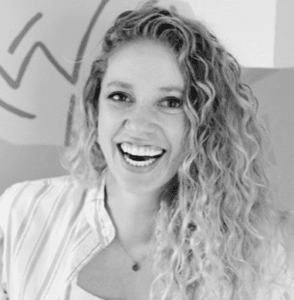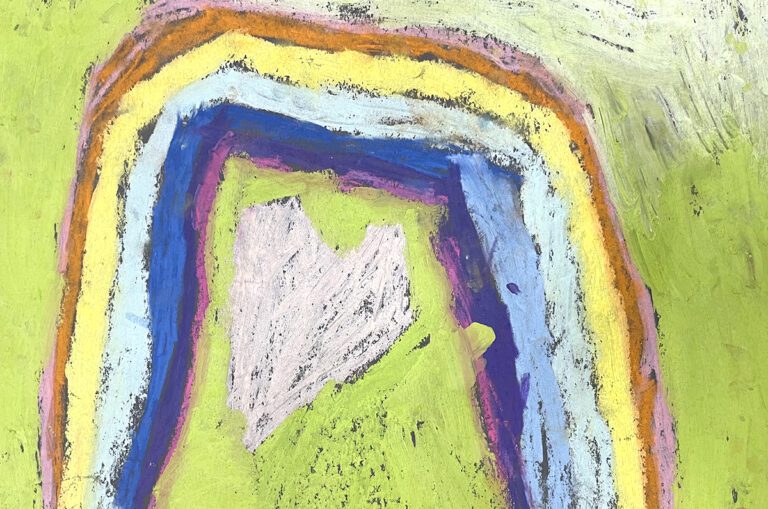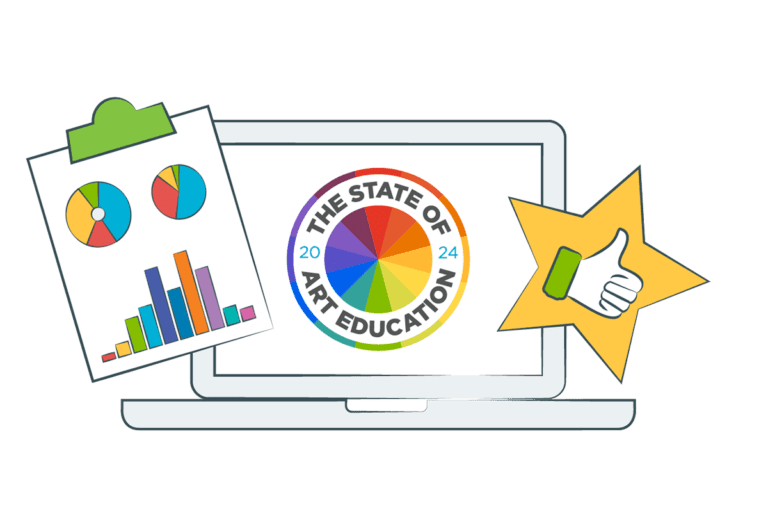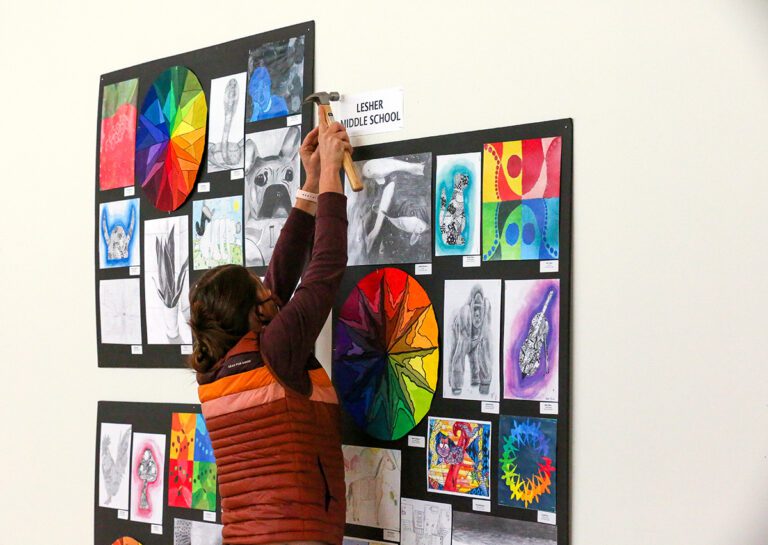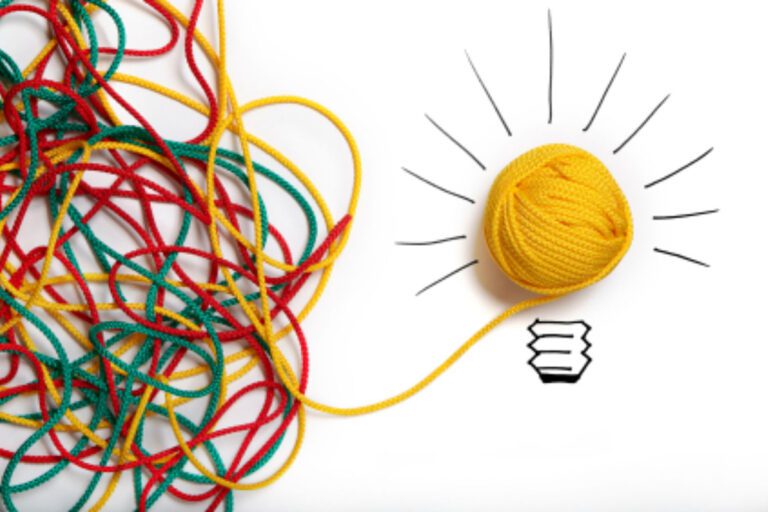Let’s talk about comparison. A very specific type of comparison. Yes, Art Teacher Comparison is real.
Do you ever see something another educator has done and think, “Wow, they really have it together.”
Or after you see a perfect post on social media, you think, “I could never do what they do. It’s just too good.”
Perhaps you have thought, “Ugh…I’m failing at this art teacher thing,” after reading an article on this very website!
If you have ever had these feelings, I assure you, you are not alone. It’s a pretty natural human feeling to compare yourself to others. However, even though comparison is common, it can be very dangerous to your mental health.
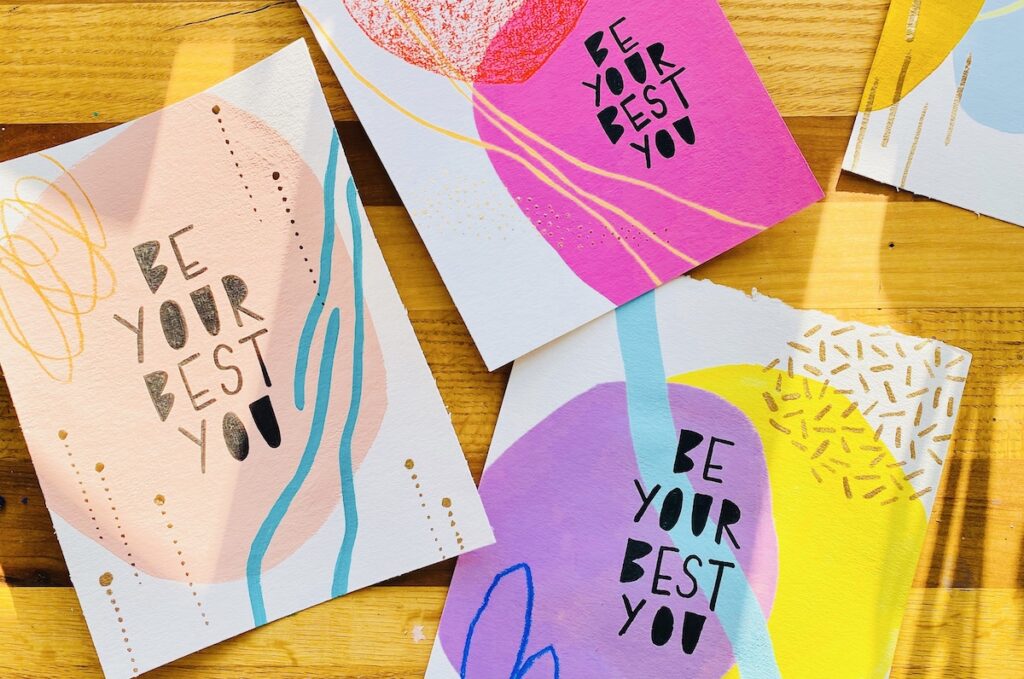
As you find yourself scrolling your social media feed or viewing other art educator’s lives and methods through a comparative lense, challenge yourself to remember these 5 important things:
1. We are all talented art teachers, doing our best.
With so many digital lessons and ideas flooding our feeds, it’s almost impossible not to compare yourself to everyone and everything out there. We don’t do ourselves any favors, though, when we use those comparisons to criticize others or ourselves. Especially as art teachers deep in the visual world, it can be hard to see something and not feel instant art teacher envy.
As art educators, we rarely teach in a vacuum. Yes, some of us might live on a lonely island as the only art teacher in our school or district. However, we find ourselves inspired and influenced by the people and things we see around us. All that inspiration leads to great things for our students. Our highly creative, artistic minds can harness that inspiration and generate meaningful teaching for our students. Though you might see another art teacher doing something awesome, remember you, too, are equally awesome!
2. Surround yourself with people and things that bring you joy and support.
Being confident in your integrity is a huge part of who you are as a person. Theodore Roosevelt famously said, “Comparison is the thief of joy.” He couldn’t be more right. Comparing yourself to others can make you feel joyless and lesser than. Comparison creates feelings of envy, low self-esteem, anxiety, depression, and the inability to trust others. Overall, these feelings essentially make you devalue yourself, starting a terrible downward spiral. It hurts to feel those sinking feelings of comparison. Those negative feelings can make you think you aren’t good enough.
Surround yourself with people who know and love you for who you are. Keep those people close. They will support you and continue to encourage you to be the best version of you.
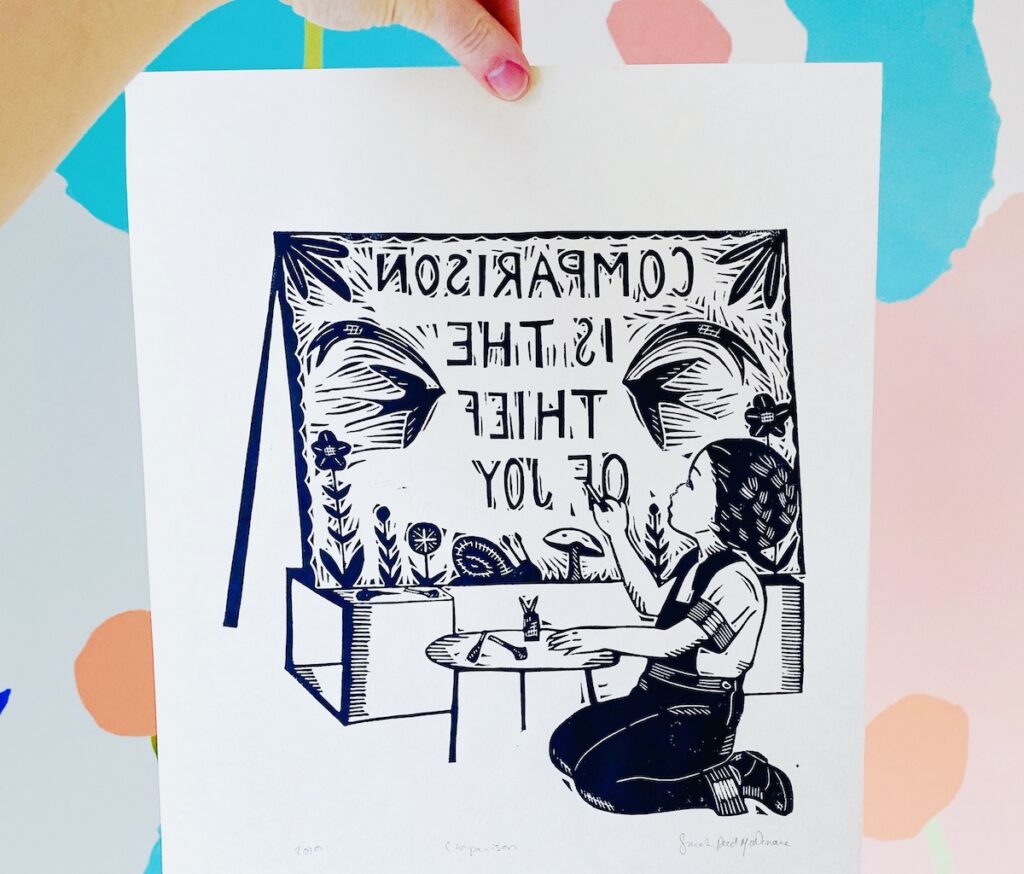
Print by SRMprints
3. Practice mindfulness.
Observe how something makes you feel. Identify that feeling. Then move on from it. Watch that feeling cross your mind like a passing car. Try thinking, “Oh, look at that, I feel envy from seeing that teacher’s awesome post. It’s interesting that I feel that way. But actually, I have value as an educator and choose to spread positivity instead of letting my jealousy take over.”
A study from researchers at Bond University in Australia looked at the relationship between self-worth, self-esteem, and Instagram.
Here is what they discovered. “It turned out that people who based their self-worth more on others’ approval tended to engage in more social comparison on Instagram, and that people who engaged in more social comparison on Instagram ultimately tended to have lower self-esteem. By the same token, how much people compared themselves to others on Instagram depended on how much the approval of others mattered for their self-worth – people who used Instagram more often tended to engage in more social comparison on Instagram when their self-worth was more contingent on other people’s approval.”
Knowing these feelings of comparison can negatively affect our self-worth is all the more reason to practice mindfulness. Notice the feelings of comparison when they happen, observe them, and let them pass you by, then reassure your own feelings of self-worth.
4. You are seeing everyone’s “highlight reel.”
When it comes to social media content, we often see people’s “highlight reel” instead of their “behind the scenes.” An edited photo on Instagram. A polished video. A carefully crafted email. All of this media is outside the reality of day to day life.
For example, in my online “COOL BEANS CLUB!” art videos, I have taken the time to wear a legitimate outfit complete with fancy earrings and big ‘ole smile. I’ve edited the video by heightening the color contrast for optimal video quality. I’ve cut out unnecessary video transitions. These video tutorials I produce are my highlight reel. What you don’t see are my “behind the scenes” when I edit the videos on my computer while wearing sweatpants, mismatched socks, and no makeup.
Not only do we struggle to manage feelings of seeing everyone else’s “highlight reel,” but we also know people more often hold in their negative feelings, making situations appear more positive than they really are. We need to stop and think about if it’s fair to compare when we likely don’t have all the information. Take a moment and put things into perspective.
Need more information? Learn more here!
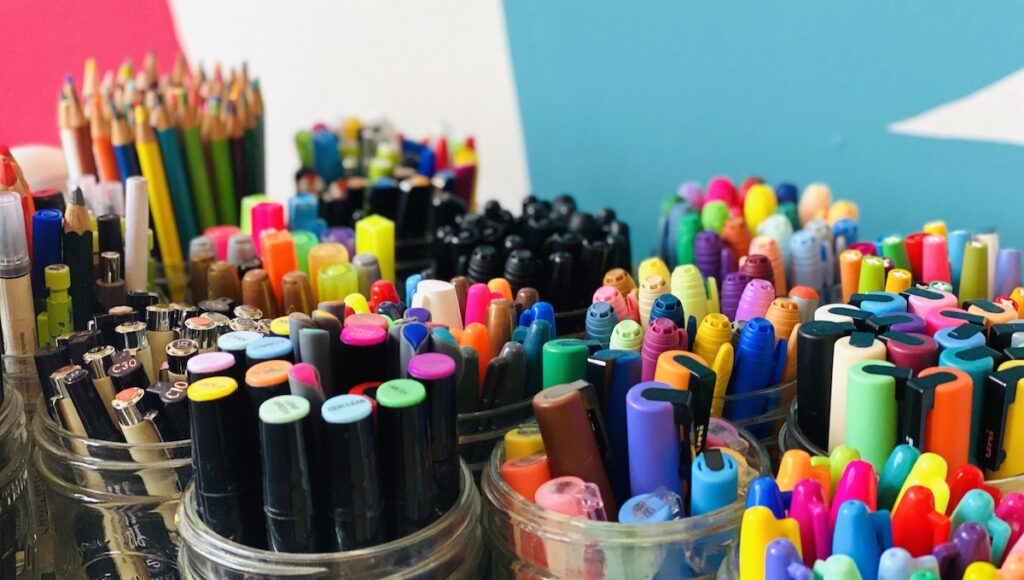
5. You do you.
Comparing yourself to others usually makes it harder for you to focus on what is important. This negative spiral of comparison makes it difficult for us to accomplish the things we want to do. It makes it harder for us to take care of our own lives and the people who truly know us and bring us joy. When things are tough, your attitude is everything. If you are looking for more about managing feelings of comparison, Tom Shillue, American Stand-Up Comedian, sums it up perfectly in this short video, “Don’t compare yourself to others.”
What makes you amazing is everything that makes you exactly YOU.
Comparison is normal, but in these days where we are all seeing a filtered version of “the best,” it can be a determinant to ourselves and, as art teachers, our students. We have to remember our own amazing qualities and abilities and trust that doing our best is enough.
Where do you feel like comparison feelings happen?
How can you manage your art teacher comparison?
Why is it important to talk about comparison feelings?
Magazine articles and podcasts are opinions of professional education contributors and do not necessarily represent the position of the Art of Education University (AOEU) or its academic offerings. Contributors use terms in the way they are most often talked about in the scope of their educational experiences.
